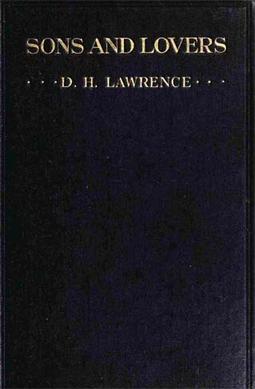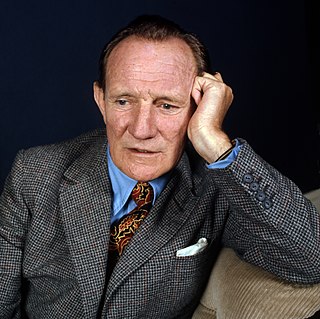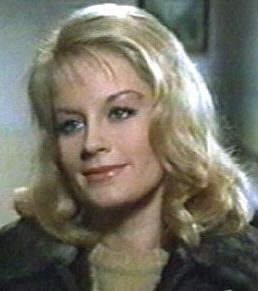
Room at the Top is a 1959 British drama film based on the 1957 novel of the same name by John Braine. It was adapted by Neil Paterson, directed by Jack Clayton, and produced by John and James Woolf. The film stars Laurence Harvey, Simone Signoret, Heather Sears, Donald Wolfit, Donald Houston, and Hermione Baddeley.

Sons and Lovers is a 1913 novel by the English writer D. H. Lawrence. It traces emotional conflicts through the protagonist, Paul Morel, and his suffocating relationships with a demanding mother and two very different lovers, which exert complex influences on the development of his manhood. The novel was originally published by Gerald Duckworth and Company Ltd., London, and Mitchell Kennerley Publishers, New York. While the novel initially received a lukewarm critical reception, along with allegations of obscenity, it is today regarded as a masterpiece by many critics and is often regarded as Lawrence's finest achievement. It tells us more about Lawrence's life and his phases, as his first was when he lost his mother in 1910 to whom he was particularly attached. And it was from then that he met Frieda Richthofen, and around this time that he began conceiving his two other great novels, The Rainbow and Women in Love, which had more sexual emphasis and maturity.

Edward Montgomery Clift was an American actor. A four-time Academy Award nominee, he was known for his portrayal of "moody, sensitive young men", according to The New York Times.

Nicole Françoise Florence Dreyfus, known professionally as Anouk Aimée or Anouk, is a French film actress who has appeared in 70 films since 1947, having begun her film career at age 14. In her early years, she studied acting and dance besides her regular education. Although the majority of her films were French, she also made films in Spain, Great Britain, Italy and Germany, along with some American productions.

Trevor Wallace Howard-Smith was an English stage, film, and television actor. After varied work in the theatre, he achieved star status with his role in the film Brief Encounter (1945), followed by The Third Man (1949).

Marcello Vincenzo Domenico Mastroianni was an Italian film actor, regarded as one of his country's most iconic male performers of the 20th century. He played leading roles for many of Italy's top directors in a career spanning 147 films between 1939 and 1997, and garnered many international honours including 2 BAFTA Awards, 2 Best Actor awards at the Venice and Cannes film festivals, 2 Golden Globes, and 3 Academy Award nominations.

Paris, Texas is a 1984 drama road film directed by Wim Wenders, co-written by Sam Shepard and L. M. Kit Carson, and produced by Don Guest. It stars Harry Dean Stanton, Nastassja Kinski, Dean Stockwell, Aurore Clément, and Hunter Carson. In the film, disheveled recluse Travis Henderson (Stanton) reunites with his brother Walt (Stockwell) and son Hunter (Carson). Travis and Hunter embark on a trip through the American Southwest to track down Travis's missing wife, Jane (Kinski).

Robert Dean Stockwell was an American actor with a career spanning seven decades. As a child actor under contract to Metro-Goldwyn-Mayer, he first came to the public's attention in films including Anchors Aweigh (1945), Song of the Thin Man (1947), The Green Years (1946), Gentleman's Agreement (1947), The Boy with Green Hair (1948), and Kim (1950). As a young adult, he had a lead role in the 1957 Broadway and 1959 screen adaptation of Compulsion; and in 1962 he played Edmund Tyrone in the film version of Long Day's Journey into Night, for which he won two Best Actor Awards at the Cannes Film Festival. He was nominated for a Golden Globe Award for Best Actor – Motion Picture Drama for his starring role in the 1960 film version of D. H. Lawrence's Sons and Lovers.

Jerome Irving Wald was an American screenwriter and a producer of films and radio programs.

Jack Cardiff, was a British cinematographer, film and television director, and photographer. His career spanned the development of cinema, from silent film, through early experiments in Technicolor, to filmmaking more than half a century later.

Eileen Mary Ure was a British actress. She was the second Scottish-born actress to be nominated for an Academy Award, for her role in the 1960 film Sons and Lovers.

Terminal Station is a 1953 romantic drama film directed and produced by Vittorio De Sica and starring Jennifer Jones, Montgomery Clift, and Richard Beymer in his debut role. It tells the story of the love affair between a married American woman and an Italian intellectual. The title refers to the Roma Termini railway station in Rome, where the film takes place. The film was entered into the 1953 Cannes Film Festival.

Heather Christine Sears was a British stage and screen actress.
The 18th Golden Globe Awards, honoring the best in film for 1960, were held on March 16, 1961.

Under the Yum Yum Tree is a 1963 American sex comedy film directed by David Swift and starring Jack Lemmon, Carol Lynley, Dean Jones, and Edie Adams, with Imogene Coca, Paul Lynde, and Robert Lansing in supporting roles. The film received two Golden Globe Award nominations in 1964: Best Motion Picture – Musical or Comedy and Best Actor – Motion Picture Musical or Comedy for Lemmon.

The Glass Menagerie is a 1950 American drama film directed by Irving Rapper. The screenplay by Tennessee Williams and Peter Berneis is based on the 1944 Williams play of the same title. It was the first of his plays to be adapted for the screen.

Return to Peyton Place is a 1961 American drama film in color by De Luxe and CinemaScope, produced by Jerry Wald, directed by José Ferrer, and starring Carol Lynley, Tuesday Weld, Jeff Chandler, Eleanor Parker, Mary Astor, and Robert Sterling. The screenplay by Ronald Alexander is based on the 1959 novel Return to Peyton Place by Grace Metalious. The film was distributed by 20th Century Fox and is a sequel to their earlier film Peyton Place (1957).

Max Rose is a 2016 American drama film written and directed by Daniel Noah, and distributed by Paladin Films. The film stars Jerry Lewis, Kevin Pollak, Kerry Bishé, Claire Bloom and Dean Stockwell. Its story follows a jazz pianist who suspects that his wife of 65 years may have been unfaithful.

















